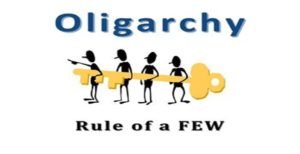Image source: usaherald.com
A dictatorship is a form of leadership in which the powers are entrusted to a single individual or a small group of individuals. In this form of leadership, people have no say in the functioning of the current system and are expected to do what is decided for them.
Having a dictatorship government has its benefits and drawbacks. This article will let you understand the pros and cons of dictatorship.
Pros:
1. Quick running of activities: Since decision-making lies with one individual, things move quickly due to quick decisions.
2. Stable government: In this form of leadership, the decision-making powers are entrusted to a single person and others don’t have any say. This may lead to having a stable country since people only follow orders without questioning them.
3. Efficiency: In cases of emergency, dictatorship leadership is more efficient since one individual is responsible for decision-making. The plan of action and individual responsibility are well stated to cope with the emergency.
4. Less room for corruption: In a dictatorship environment, there are strict rules, regulations, penalties, and severe punishment thus making people working under the dictator less liable to any corruption.
5. Fewer crime rates: The law and order results in better control of crimes resulting in fewer crime rates. The laws are immediately passed without any public participation.
6. Promote International diplomacy: A dictator with a sound mind can form alliances with other nations and negotiate on behalf of the nation. This opens more opportunities for people and promotes international diplomacy.
7. Experience: Many dictators are elected due to their experience. Their real-life experiences in certain areas allow them to accept more responsibility and act for the better benefit of all.
8. Faster development and success: In a dictatorship system, there are no obstacles towards development. There are also numerous resources that are utilized towards the success and developments.
9. Economic benefits: In dictatorship systems, the election process is very costly and instead they channel the money for campaigns and other electoral processes to the development of the country.
10. Strong government: No criticism and opposition, all effort is focused on the achievement of government objectives.
Cons:
1. Not a long-term solution: Dictatorships exist everywhere, however, they are short-lived. In many cases, a dictator has to survive several attempts to overthrow his governance.
2. Laws are changed anytime: Using a dictatorship form of leadership, the dictator can change the rules and policies anytime to impose his will. Dictators change the laws to benefit themselves.
3. Oppression of people: Dictatorship is ruled by fear and most of the dictators achieve their goal, inflict fear and sometimes kill those who oppose their ruling.
4. No freedom of choice of people: In this setup, people do not have a say. They are supposed to do as told without questioning. Personal rights are also restricted.
5. Accumulation of wealth on a few hands: Dictator and his allies can make decisions in their favor without looking at the interest of the majority of the public.
6. Isolated nation: In countries where there is a dictatorship, people are the ones who suffer because of the action of the government. Dictatorship leads to a slow decline in international relations and some countries impose strict restrictions in dealing with a dictatorship country thus affecting the economy of that country.
7. Innocent people get caught in a power struggle: sometimes when there are political rivals, it leads to the mass killing of innocent people who are caught up in a situation where there is a power struggle between governments.
8. An opposition is rarely allowed: In most dictatorships systems, any opposition is met with a lot of force, threats, and death warrants are issued. There are no checks and balances in this type of leadership making people suffer more.
9. Disinterest in society: Oppression of the people may lead to a lack of personal initiative in any activity. People will only be obedient so that they can maintain peace and survive.
10. Creates power vacuum: In an event where the dictator dies or is killed, there is a power vacuum that results in political unrest in the country.




Every ‘Pros’ arguments are actually … false !!